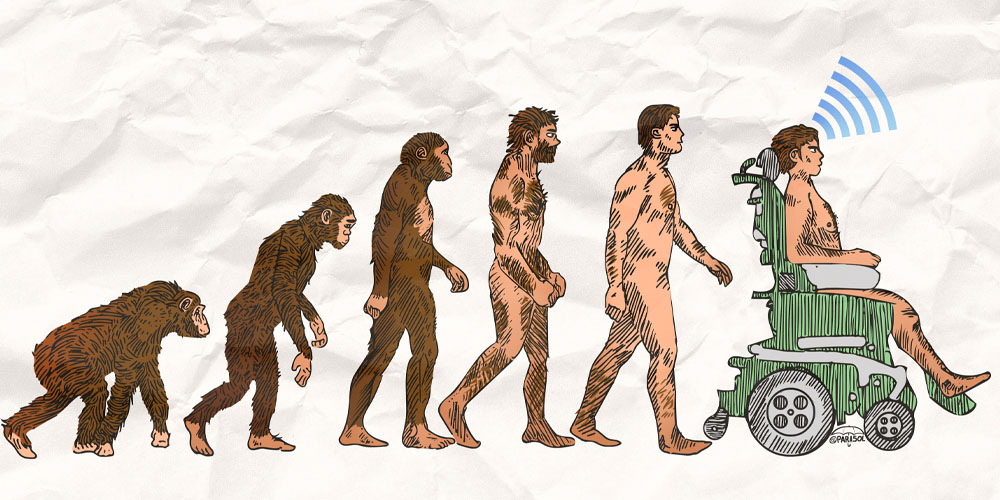Discover how emerging technologies like Neuralink and AI transform online gambling by making it more accessible to players with disabilities. Explore the innovations shaping a more inclusive and adaptive online casino experience.
With the adaptability and ever-evolving understanding of how technology can resolve problems once thought insurmountable, there is a growing conversation about the importance of inclusion and accessibility.
Join us as we investigate the challenges large portions of the online gambling community face daily and how technology is positioned to change the industry.
Technology Pioneers Digital Wayfinding
While having a disability does not diminish a person’s value or ability to contribute to the world, there are some real-world challenges that non-disabled people will never have to deal with. Something as simple as dealing with a right-hand-favouring mouse when your right hand is incapacitated can be incredibly frustrating.
The four most impactful impairment categories for gaming are:
- Impaired Sight: This can range from mile to total blindness, limitations with distinguishing specific colour ranges, and even sensitivity to flashing lights and brightness levels.
- Impaired Hearing: This ranges from hard of hearing to total deafness and can be challenging when gambling with others as missed visual cues leave the player unaware that they need to act.
- Mobility Limitations: Depending on the severity of the player’s mobility, the use of mouse and keyboard, on-screen mobile buttons and other traditional controllers can make casino games unplayable.
- Cognitive Impairments: Casino fans who struggle with cognitive challenges could find it difficult to focus on what to do next, thanks to on-screen distractions, fast-paced movements, or retaining an understanding of how a new game works.
According to a 2023 World Health Organization report, more than 1.3 billion people “experience significant disability”, which means that close to 16% of the global population cannot simply load up their favourite online casino and enjoy the library of available games, including live dealer games and progressive jackpot slots.
We need cutting-edge technologies to ensure that online casinos and their games feature adjustable controls, specialised input and output options, subtitles and captions for spoken commands, and other helpful tools.
Neuralink Revolutionises Inclusion
One of the most widely recognised examples of how Brain-Computer Interfaces (BCIs) can assist people with disabilities is the early success of Elon Musk’s Neuralink system.
The company describes its mission as:
“[Our mission is to] Create a generalised brain interface to restore autonomy to those with unmet medical needs today and unlock human potential tomorrow.”
Neuralink began its first human trial in January 2024. Noland Arbaugh was paralysed from the shoulders down after an accident in a lake. Thanks to the implanted BCI, Arbaugh showed signs of controlling his laptop’s mouse cursor within a month. Within two months, he could play chess, moving pieces with relative ease – something he believed lost forever when he was first disabled.
Celebrating his ongoing control over the device, Arbaugh shared the following image on the social media platform x.com:

Neuralink announced its second human trial in August 2024. Thanks to the company’s progress, the second patient could outperform Arbaugh exponentially. Alex could begin controlling his mouse cursor within five minutes of using it for the first time and broke the previous BCI use records within one day of using ‘The Link’.
Within days, Alex could play the popular first-person shooter video game Counter-Strike. He also designed and printed a 3D charging clip for his Link using CAD design software. All of this was achieved purely by the power of thought.
Musk has declared his intent to have large numbers of active Neuralink users within a few years. This incredible technology could revolutionise online casino accessibility and open doors previously thought closed to untold numbers of talented individuals worldwide.
The Power of Speaking Your Mind
With the adoption of voice-activated assistants like Siri and Alexa, voice controls for online casino and betting platforms should be a no-brainer for casino software developers looking to support their players and even lock in a niche market segment.
It would be a game changer if players could use voice prompts to interact with online casino software without needing a handheld control system. This would allow them to take control of their gaming by navigating the software, making deposits and withdrawals, and playing their favourite casino games by simply voicing present commands.
Integrating AI-driven voice applications could further enhance the player experience by allowing the software to learn the user’s way of speaking, regional dialects, and inflexions. It could even create a bank of “shortcodes” to make voice commands easy to issue and remember.

Personalised Experiences Through AI
Mobile technology has already proven that modular casino game development is possible. This has allowed spin buttons and other controls to be manually relocated and the game to morph to fit the platform on which it is being used.
The inclusion of AI into the game build itself would allow impaired individuals to have their personal gaming and control needs met by having an AI assistant work with them to create a control layout or interaction library.
This would mean that casino software and the processes that underpin it would be optimised around the customer rather than forcing them through a funnel that makes it difficult for them to enjoy something as simple as playing real money slots.
The AI could also be taught to respond to changes in the user’s needs in real time, reducing the volume of games, decreasing the brightness and frequency of on-screen flashes and other potentially triggering scenes, and even removing games from the library that could trigger negative emotion responses in people with past traumas or phobias.
Future Outlook
With the need to treat people with dignity and the increasing demand for new customers in an increasingly competitive industry, the development studios that invest in the technologies we’ve discussed and those that are emerging could find themselves leading the market in engagement and sustainability—something that would serve their bottom line and the needs of their fans. In the business, we call this a Win-Win.
